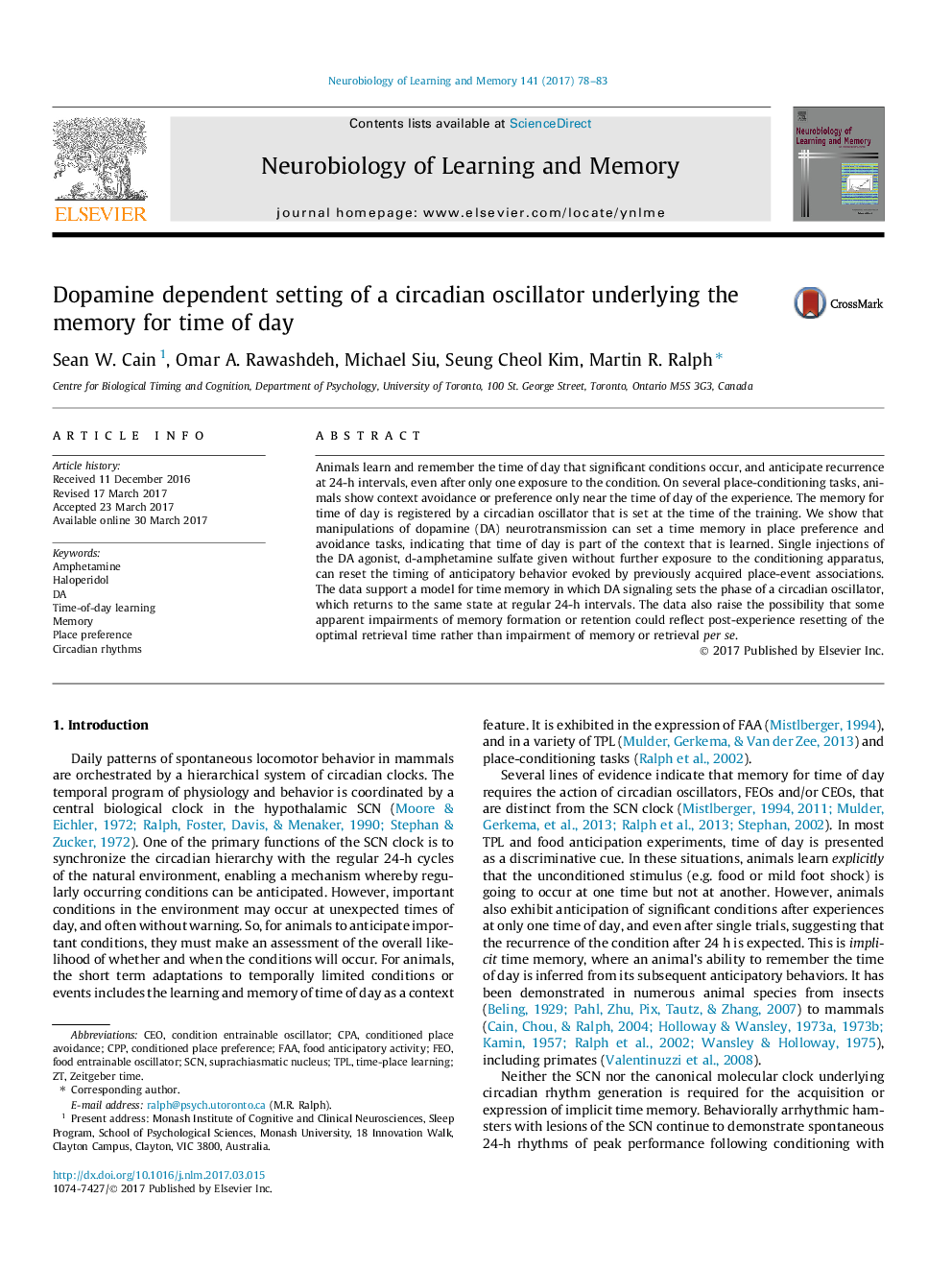| Article ID | Journal | Published Year | Pages | File Type |
|---|---|---|---|---|
| 5043170 | Neurobiology of Learning and Memory | 2017 | 6 Pages |
â¢Place preferences were conditioned in mice using either amphetamine or haloperidol.â¢Preference for both drugs was highest at the time of day of conditioning.â¢A single dose of amphetamine given in the home cage on the day following place avoidance conditioning, reset the timing of the place avoidance to the amphetamine injection time, with no loss of memory for context.â¢Chronic haloperidol did not block the formation of a context memory but eliminated rhythmicity in the expression of place avoidance.â¢Results suggest that the timing of an important event is encoded by a condition entrainable oscillator that is set by an acute change in dopamine transmission at the time of the event.
Animals learn and remember the time of day that significant conditions occur, and anticipate recurrence at 24-h intervals, even after only one exposure to the condition. On several place-conditioning tasks, animals show context avoidance or preference only near the time of day of the experience. The memory for time of day is registered by a circadian oscillator that is set at the time of the training. We show that manipulations of dopamine (DA) neurotransmission can set a time memory in place preference and avoidance tasks, indicating that time of day is part of the context that is learned. Single injections of the DA agonist, d-amphetamine sulfate given without further exposure to the conditioning apparatus, can reset the timing of anticipatory behavior evoked by previously acquired place-event associations. The data support a model for time memory in which DA signaling sets the phase of a circadian oscillator, which returns to the same state at regular 24-h intervals. The data also raise the possibility that some apparent impairments of memory formation or retention could reflect post-experience resetting of the optimal retrieval time rather than impairment of memory or retrieval per se.
